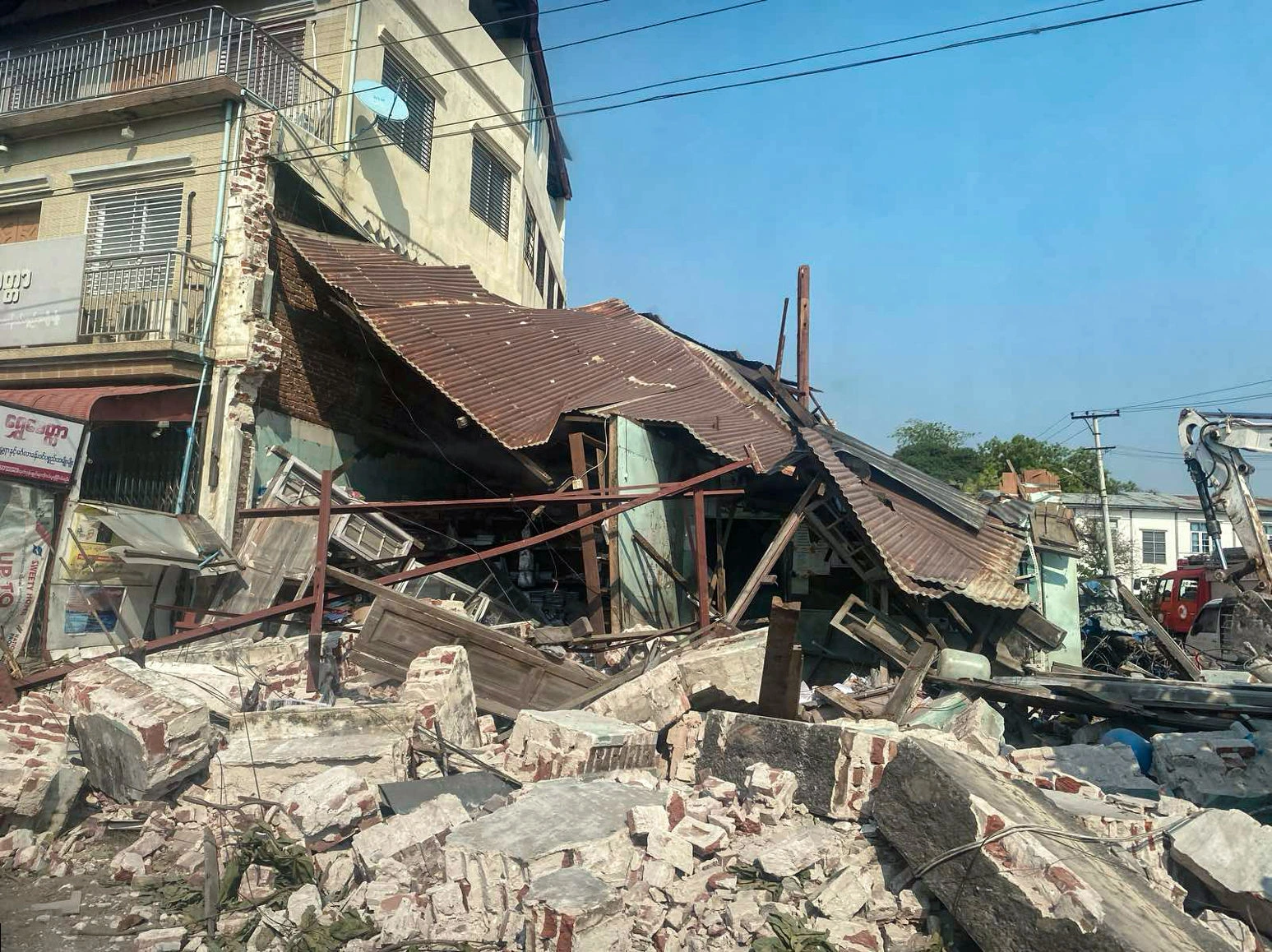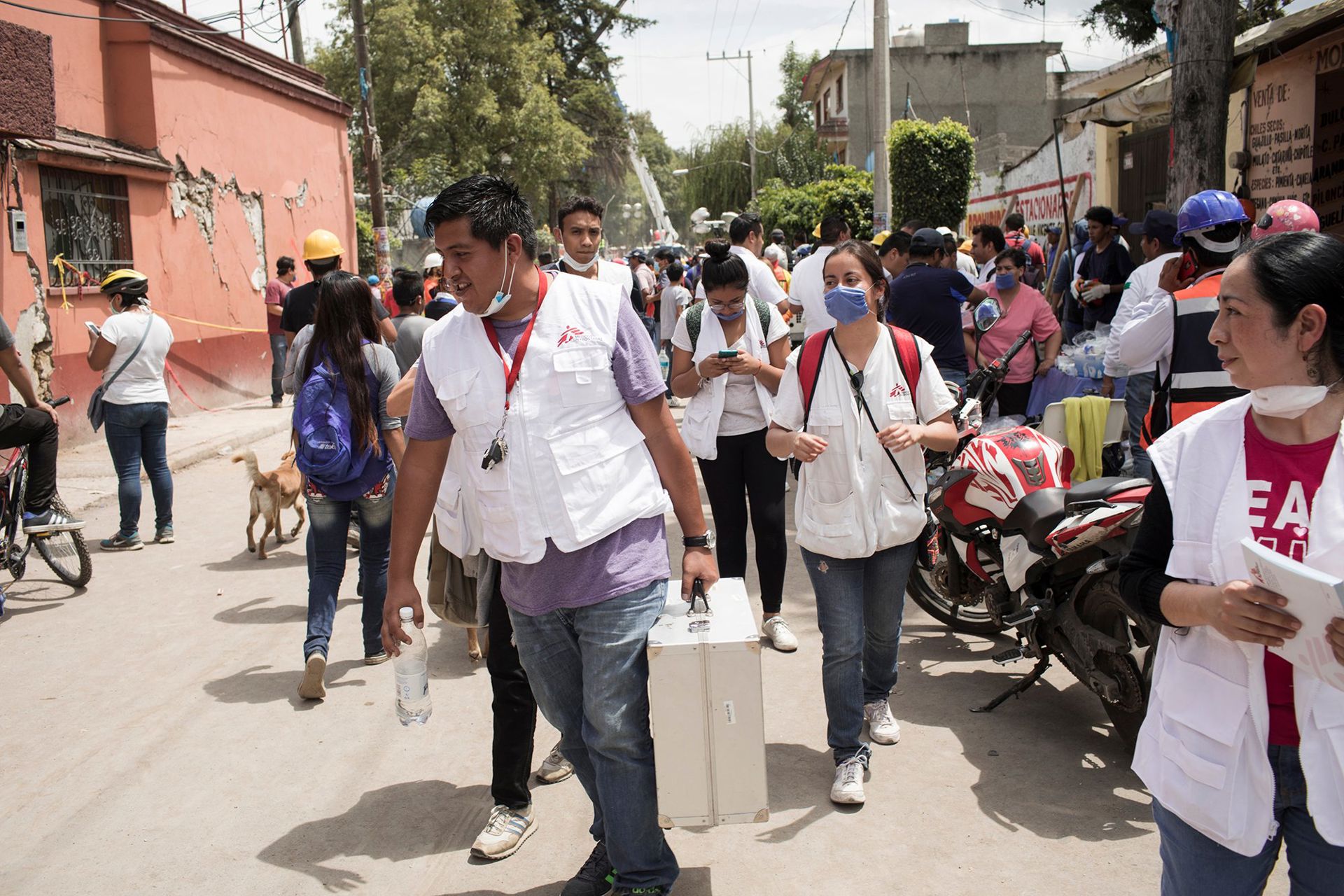Doctors Without Borders / Médecins Sans Frontières (MSF) has deployed four of its psychosocial support teams in several areas of Mexico City and is closely evaluating the psychological and medical needs in the state of Morelos following the strong earthquake that took place on Tuesday 19 September. Meanwhile, MSF continues its activities in several communities in the state of Oaxaca that were affected by another earthquake 12 days before.
MSF activated its emergency response following the 7.1 magnitude earthquake, with its epicentre in Axochiapan in Morelos state, which struck Mexico City, Puebla, Cuernavaca and several other municipalities in the center of the country. The preliminary death toll sits at 228 people. The number of injured is not yet confirmed but is estimated as being in the thousands, most suffering from non-life-threatening injuries.
In the first 24 hours the MSF teams began providing psychosocial support to the people in the areas where structures had collapsed. MSF has deployed four teams – made up of psychologists and social workers – at several points where rescue efforts are still underway. MSF teams are helping the families to cope and overcome this moment of crisis, and are strengthening the resilience of the population in the face of this stressful situation.
Thirty nine buildings have collapsed in Mexico City, while in the state of Morelos at least 2,000 houses have been damaged. The cities of Jojutla and Cuernavaca have been very badly affected. The Mixteca Poblana area has been hit the hardest: in more than 100 municipalities public buildings, schools, colonial-era structures and more than 60 churches have collapsed or been damaged. Most of the people in these states have experienced water, gas and electricity cuts and, in some cases, have lost telephone services too.
The consequences of this earthquake add to those caused by the quake on 7 September, which measured 8.1 on the Richter scale and impacted the southern part of the country, mainly the state of Oaxaca. In Juchitán, the region of that state hit hardest by the 7 September earthquake, an MSF mobile team is providing primary healthcare and mental health support. This team has evaluated 12 municipalities and is currently concentrating its assistance in the municipality of San Francisco Ixhuatán. In addition, MSF is planning psychosocial activities to support people in the municipality of San Mateo del Mar.
MSF is also monitoring the medical and psychological needs in the other affected states, especially in Morelos, where the teams are also assessing if essential non-food items should be distributed.



